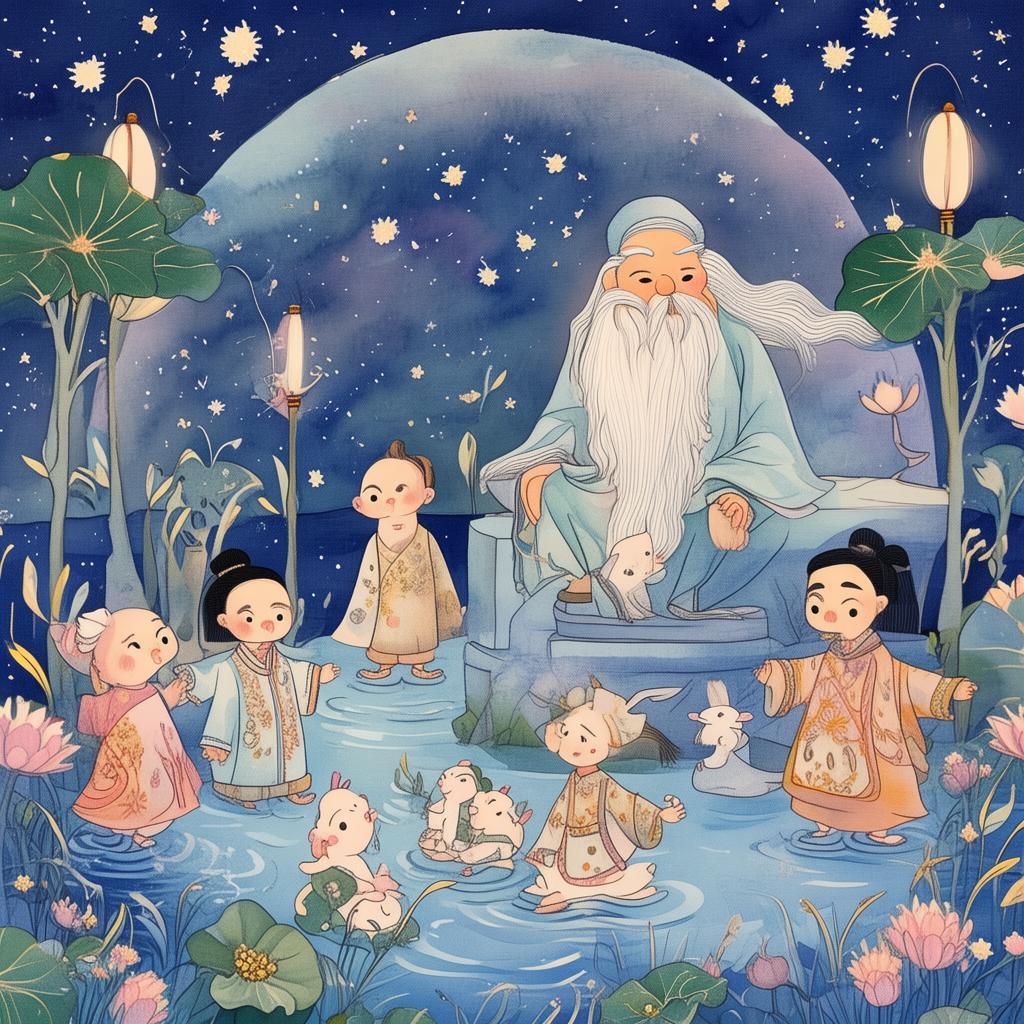Whispers of the Dying Gods
In the heart of the ancient city of Elysium, where the veil between the living and the dead was as thin as the gossamer threads that wove the tapestry of existence, there lived a young woman named Aria. Her voice was like a lark rising from the depths of a silent forest, capable of soothing the most troubled souls and evoking the most tender of memories. It was said that Aria could sing the saddest song in the world, a melody that had long been forgotten by time itself.
One crisp autumn evening, as the leaves whispered their final goodbye to the trees, Aria found herself wandering through the city's labyrinthine streets. Her heart was heavy with a sense of unease, as if the very air around her was charged with an ancient sorrow. She had been searching for something, but what that something was, she could not quite grasp.
As she walked, she stumbled upon a small, dusty shop that seemed to have been forgotten by time. The sign above the door read "Old Things," and it was here that Aria found a peculiar old book bound in leather that seemed to have been untouched for centuries. The title, embossed in gold, read "The Saddest Song of the Heart in the World of the Dying Gods."
Curiosity piqued, Aria purchased the book and brought it back to her humble abode. As she opened its pages, the words seemed to come to life, their old-world charm infusing the room with an otherworldly quality. The book spoke of a time long past, when gods walked the earth and sang their last songs before descending into the realm of the dead. It was said that the melody of their final laments was so profound that it could move the very mountains and open the gates of heaven.
As Aria read, she felt a strange connection to the words. There was a part of her that had known this melody all her life, a part that she had long since suppressed. The book described a ritual that could unlock the song, but it came with a warning: those who dared to sing the saddest song of the heart would be consumed by its sorrow.
Unable to resist, Aria began the ritual, her voice trembling with anticipation. The room grew dim, and the world outside seemed to blur into a distant memory. She felt a presence, a feeling of being watched, but she dared not turn back. Her voice rose, pure and clear, as she began to sing the melody that had been buried deep within her soul.

The song was like a river of tears, flowing from her lips and into the air around her. It was the sound of loss and longing, of a love that never was and a life that never was. The walls of the room seemed to shake with the emotion, and Aria could feel the weight of the gods' sorrow pressing down upon her.
Suddenly, the room was filled with the faces of the dying gods, their expressions etched with pain and regret. They were the ones who had sung this song, and now they were reaching out to her, imploring her to take on their burden. "You must sing our song," they seemed to say, "for only you can carry the weight of our sorrow."
Aria felt herself being pulled into the world of the dying gods, her body becoming a vessel for their voices. She was no longer Aria, the young singer from Elysium, but a part of the pantheon, a goddess in her own right. She sang with all her might, her voice becoming the saddest song in the world, a melody that could move the very stars and shatter the foundations of the cosmos.
As the song reached its crescendo, Aria felt herself being consumed by the sorrow. She saw the world around her dissolving into nothingness, and she knew that she was about to die. But as she closed her eyes, she felt a surge of determination. She would not let the gods' sorrow consume her completely. She would carry their burden, but she would also give them hope.
With her last breath, Aria sang a new melody, a song of resilience and hope. The sadness of the gods was lifted, and they were allowed to descend into the realm of the dead with a sense of peace. Aria, too, found herself in the afterlife, but not as a goddess, but as a mortal soul, free from the burden of the gods' sorrow.
And so, the saddest song of the heart in the world of the dying gods was no more, but its legacy lived on in Aria's memory. She had become the载体, the vessel through which the gods' sorrow and hope were intertwined. And though she had lost her life, she had gained an eternal place in the hearts of all who heard her song.
✨ Original Statement ✨
All articles published on this website (including but not limited to text, images, videos, and other content) are original or authorized for reposting and are protected by relevant laws. Without the explicit written permission of this website, no individual or organization may copy, modify, repost, or use the content for commercial purposes.
If you need to quote or cooperate, please contact this site for authorization. We reserve the right to pursue legal responsibility for any unauthorized use.
Hereby declared.









